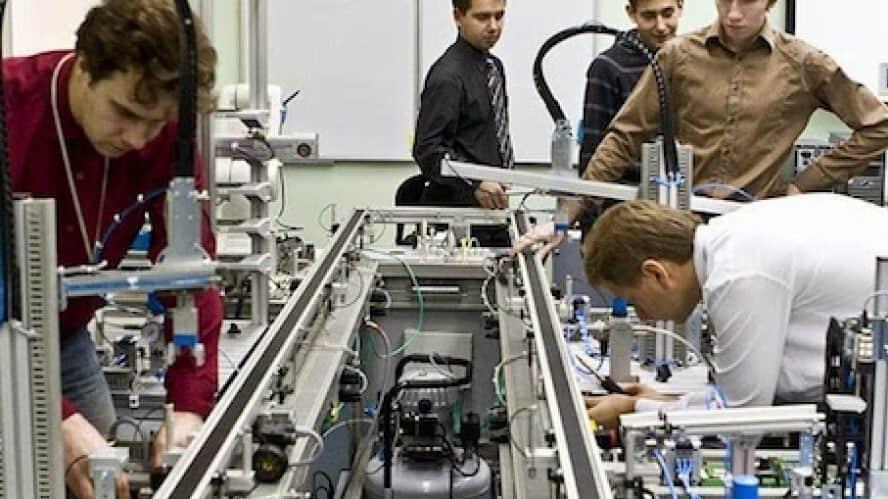
It’s taken five long years to climb out of the hole blown in the global economy by the viral pandemic of the early ‘20s, but now business is busy again. And making things is part of the new usual.
For the past 20 years, innovation has been driven by tech and scaled by globalization. “Designed in Silicon Valley and mass produced in China” was the mantra for success. One only has to look at the exponential growth of the iPhone for proof that the strategy worked.
Until it didn’t. Just-in-time manufacturing, bespoke configurations and integrated, optimized, least cost supply chains were efficient, but fragile, brittle even. When a global pandemic tested its resilience, the system failed, spectacularly. Tech gurus lamented that America had no medicines, masks or medical devices to tackle the virus – or even the factories to make them! The whole economic system was too lean, too focused on streamlined efficiency, too vulnerable to disruption.
The same could be said for Britain and most of the EU. Most of the actual making of things was done in Asia, from Vietnam to Malaysia, and India too. Everything from chemicals to computers, and life-saving gear from simple masks to complex ventilators, was all outsourced. The old economies were built on innovation and consumption – with a big manufacturing gap in the middle.
Business new usual is different. Innovation means finding ways to meet customer needs, and then making the things that do that, not just providing a platform or service. Remember 3D printers? They’ve given way to automated digital fabricators, sometimes called robofabbers. Giga-sized factories are great for standardized products, but smaller, more agile production lines are plugging the gaps, building the new maker economy.
Going back to the basics of building things is rebuilding the global economic system, trading finished goods in both directions, and building resilience. It’s the new formula for success.
Warning: Hazardous thinking at work
Despite appearances to the contrary, Futureworld cannot and does not predict the future. Our Mindbullets scenarios are fictitious and designed purely to explore possible futures, challenge and stimulate strategic thinking. Use these at your own risk. Any reference to actual people, entities or events is entirely allegorical. Copyright Futureworld International Limited. Reproduction or distribution permitted only with recognition of Copyright and the inclusion of this disclaimer.
